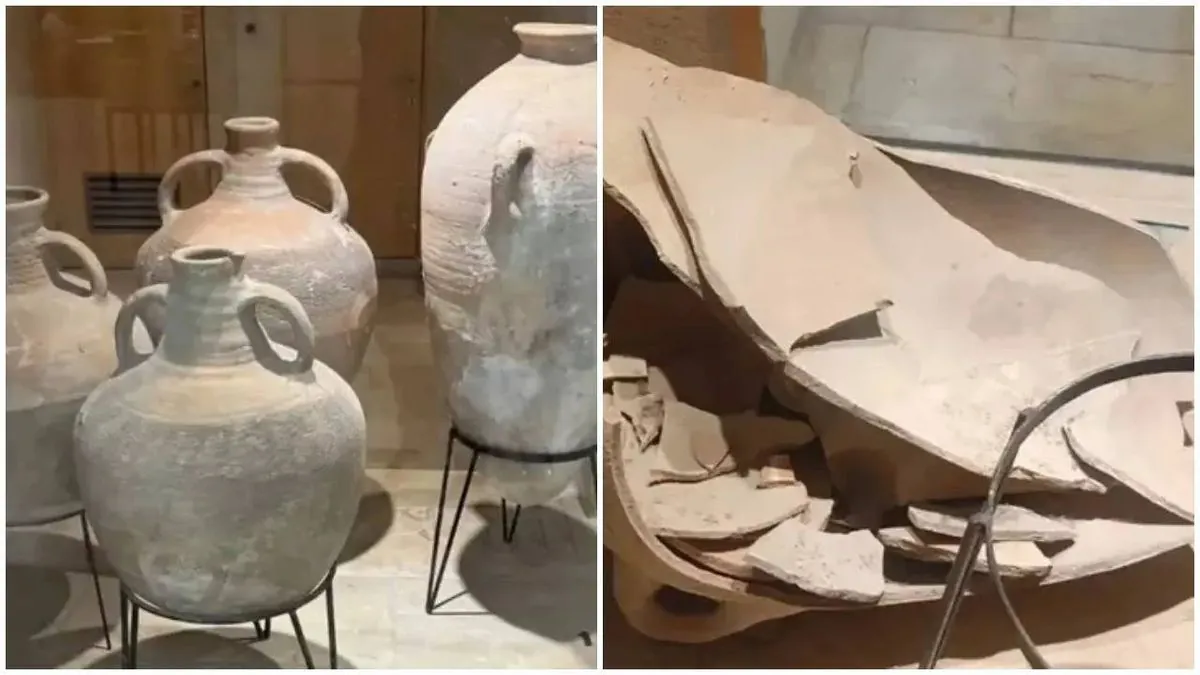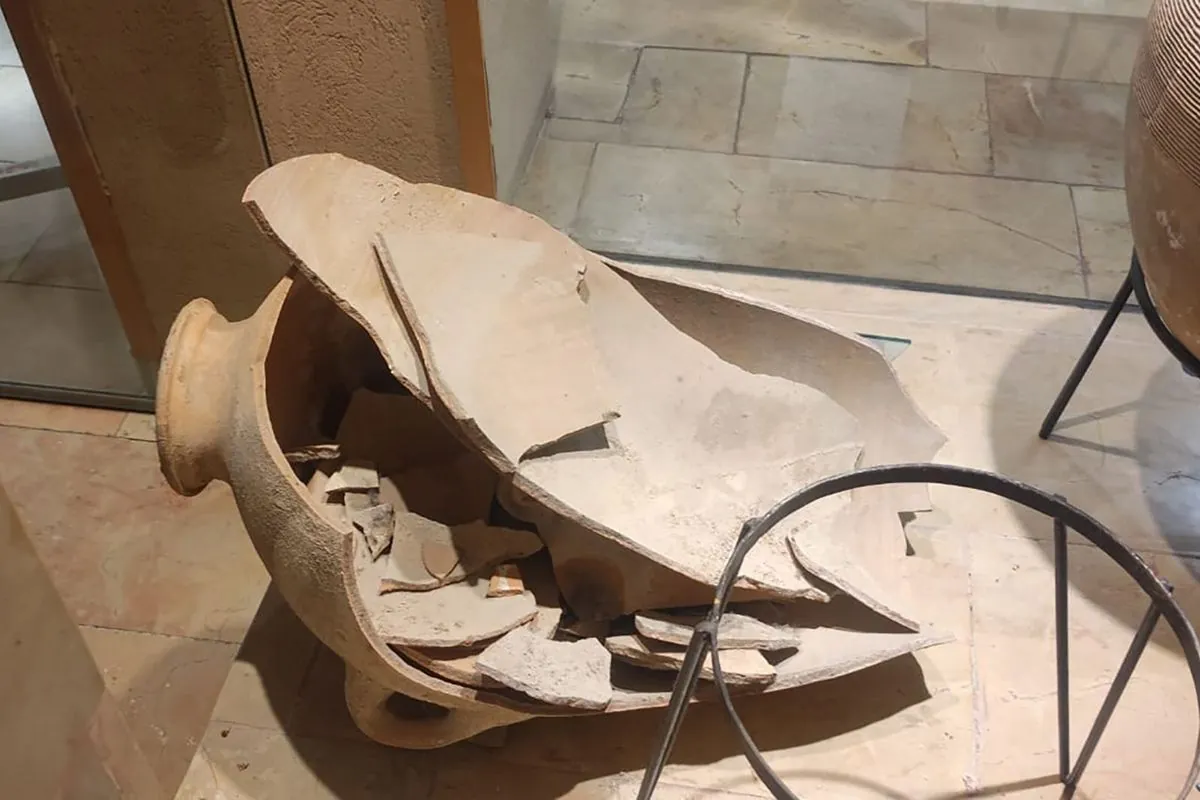4-Year-Old Breaks Ancient Jar in Israeli Museum, Sparks Educational Initiative
A young boy's accidental breaking of a 3,500-year-old jar at the Hecht Museum in Haifa leads to a positive response and educational opportunity. The museum plans to restore the artifact and invite the family back.

In a recent incident at the Hecht Museum in Haifa, Israel, a 4-year-old boy accidentally broke a rare 3,500-year-old jar, leading to an unexpected educational opportunity. The museum, known for its open display approach, has responded positively to the situation, inviting the family back and planning to use the restoration process as a learning experience.
The incident occurred five days ago when the young boy, driven by curiosity, accidentally knocked over the ancient artifact. His father, Alex Geller, described the moment: "He's not a child who typically destroys things; he simply wanted to see what was inside." The Geller family, residents of Nahariya, Israel's northernmost coastal city, were visiting the museum as part of their summer activities to escape the tensions near the Lebanon border.

The Bronze Age jar, dating back to between 2200 and 1500 B.C., had been on display at the museum for 35 years. Despite the initial shock, the museum staff responded with understanding. Inbar Rivlin, the museum director, emphasized their commitment to accessibility: "Our vision is to allow visitors to explore history without glass barriers."
The Hecht Museum, associated with Haifa University, plans to restore the jar using advanced 3D technology and high-resolution videos. Roee Shafir, a restoration expert at the museum, explained that the process would take several days due to the use of specialized adhesives. He added, "I like that people touch. Don't break, but to touch things, it's important."
This incident highlights the delicate balance between artifact preservation and public engagement in museums. Israel, with over 200 museums, has one of the highest per-capita rates globally, reflecting the country's rich historical and cultural heritage.
The Geller family has been invited back to the museum for a special visit tomorrow. As for the young boy at the center of this story, he's set to start nursery school next month, perhaps with a newfound appreciation for history.
"We want to use the restoration as an educational opportunity and make sure they feel welcome to return."
This incident serves as a reminder of the importance of preserving ancient artifacts while maintaining public accessibility. The Bronze Age jar, likely used for storing wine or oil, provides valuable insights into the daily life and trade practices of ancient civilizations in the Levant region.
As museums worldwide continue to balance preservation with accessibility, the Hecht Museum's response to this incident sets a positive example of turning an unfortunate event into a learning opportunity for all.


































